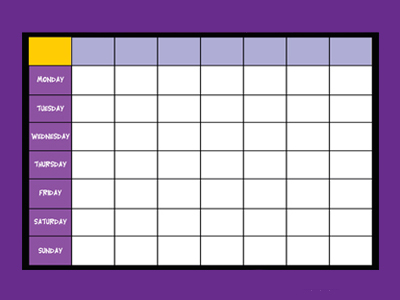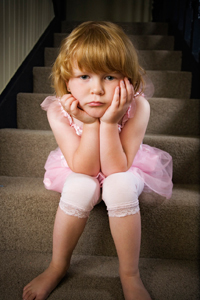How Should I Discipline my Child?
Parents face many challenges and can be pushed to their limits, especially when their children behave badly. By setting clear boundaries, removing privileges and rewarding positive behaviour, your children can be encouraged to do as they are told
 Parents often find themselves facing a multitude of challenges, particularly when confronted with the misbehaviour of their children. The expectation is that our children will heed our guidance and exhibit good conduct, but when this doesn't happen, many parents are left pondering the most effective strategies for disciplining their child. This comprehensive guide aims to provide practical insights into the best ways to discipline your child, with the ultimate goal of fostering positive behaviour and preventing undesirable conduct.
Parents often find themselves facing a multitude of challenges, particularly when confronted with the misbehaviour of their children. The expectation is that our children will heed our guidance and exhibit good conduct, but when this doesn't happen, many parents are left pondering the most effective strategies for disciplining their child. This comprehensive guide aims to provide practical insights into the best ways to discipline your child, with the ultimate goal of fostering positive behaviour and preventing undesirable conduct.
LEARN ABOUT THE BENEFITS OF LEARNING THROUGH QUIZZES
Understanding Discipline
Discipline involves the establishment of rules to encourage positive behaviour and self-control in your child. It goes beyond mere punishment; instead, it encompasses the communication of expectations, the offering of incentives, the explanation of the impact of negative behaviour on others, and the clarification of the consequences of non-compliance. Discipline is a highly individualized choice, requiring parents to find what works best for their unique family situation.
Setting Clear Rules and Boundaries
Establishing clear expectations makes the process of discipline significantly more manageable. Creating explicit rules and boundaries for your children, coupled with explaining expected behaviour, can provide a solid foundation. Consider implementing 'House Rules' and clearly outlining the consequences for rule violations, such as a lecture, loss of privileges, or additional chores. Integration of these rules into daily family life and enlisting the support of relatives in maintaining discipline can be beneficial. Reinforcing positive behaviour through praise is equally important to strike a balance between rewards and consequences.
Identifying Unacceptable Behaviour
Determining what qualifies as good or bad behaviour is inherently subjective. Clearly communicating your stance on acceptable behaviour is essential to ensure your child understands the expectations.
Understanding the Causes of Misbehaviour
Children may misbehave for various reasons, such as boredom, hunger, or sibling rivalry. While occasional misbehaviour is normal, certain triggers, such as changes in family circumstances or loss, can lead to more severe issues. Keeping a diary of incidents and seeking advice from school or medical professionals is crucial if misbehaviour is a cause for concern.
Tips for Child Discipline
- Talk to your child in a rational manner about expected behaviour.
- Phrase instructions positively to focus on desired behaviour.
- Encourage reflection on bad behaviour and establish a routine for appropriate conduct.
- Be a positive role model, as children imitate behaviour and attitudes.
- Remain calm, understand their feelings, and ensure their opinions matter.
- Assign practical tasks to teach self-discipline and emotional control.
- Implement a 'time out' area to prevent escalating incidents.
- Consistency in discipline is essential.
Children possess a knack for provoking reactions, making composure challenging for parents!
The Impact of Physical Discipline
Smacking a child is not an acceptable form of discipline. Corporal punishment is prohibited by UNESCO and other organizations, as it violates children's fundamental rights. Resorting to violence teaches children that it is acceptable and can lead to mental health issues. It is crucial to avoid physical punishment and instead, take steps to defuse potentially heated situations.
FIND OUT WHY KIDS LOVE OUR WEBSITE
Using Privileges as a Form of Discipline
Disciplining children by removing privileges, such as toys or leisure activities, can be effective if used correctly. Ensure that the privilege relates to their behaviour and is used as a warning before misconduct occurs. Older children may find losing access to electronic devices a significant consequence. Persist in enforcing the discipline and provide clear explanations to the child.

Rewarding Good Behaviour
Discipline is not solely about punishment; it also involves rewarding good behaviour. Acknowledge and praise your child when they exhibit positive behaviour. Consider implementing a rewards chart, where stickers are earned for good behaviour, leading to a treat or a sense of accomplishment. Positive discipline encourages children to learn essential lessons in self-control and self-discipline.
Additional Considerations for Effective Discipline
As parents strive to discipline their children effectively, it is important to consider additional factors that can contribute to a positive and nurturing environment.
Consistent Communication
Effective discipline relies on consistent communication between parents and children. Clearly articulate expectations and consequences, ensuring that children fully understand the reasoning behind disciplinary actions. Open communication fosters trust and understanding.
Parental Collaboration
Consistency in discipline is further enhanced when both parents collaborate and present a united front. Discuss and establish disciplinary strategies together, ensuring that both parents are on the same page when it comes to expectations and consequences.
Age-Appropriate Discipline
Adjusting disciplinary approaches based on the child's age is crucial. Younger children may respond better to time-outs and simple explanations, while older children may benefit from more complex discussions about their behaviour and its consequences.
Monitoring and Adjustment
Regularly monitor the effectiveness of disciplinary measures and be willing to make adjustments. Children's needs and understanding evolve, and adapting disciplinary strategies accordingly contributes to their overall development.
Conclusion
Disciplining children is a challenging yet crucial aspect of parenting. By understanding the various methods and approaches, parents can navigate this terrain effectively. It is essential to adopt positive discipline strategies that foster a healthy parent-child relationship and contribute to a child's overall development.
For additional parenting insights, explore our Knowledge Bank. It features articles offering tips, advice for parents, and answers to educational questions. Find the answers you seek at your fingertips!



